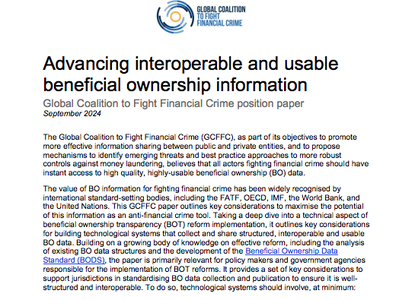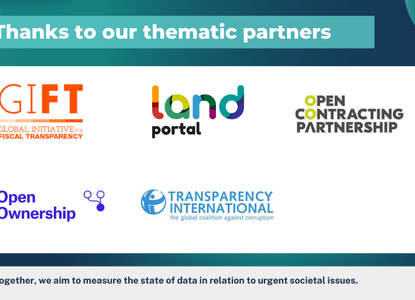Defining and capturing information on the beneficial ownership of listed companies
Help us understand how you are making use of resources from the Open Ownership website by filling out this short survey
Publication type
Briefing
Publication
Sections
Research
Summary
Publicly listed companies (PLCs, or listed companies) are companies that offer some or all their shares of stock to the general public to trade on securities markets through a stock exchange. As of 2022, the world’s top 50 PLCs alone held over a quarter of the proportional market share of global GDP. PLCs are often made subject to strict transparency and disclosure requirements by jurisdictions where they are registered and exchanges where they are listed. However, where beneficial ownership transparency (BOT) reforms are being implemented, there are significant practical challenges to applying requirements for PLCs to disclose beneficial ownership (BO) information to a central register.
This policy briefing explores the application of BOT to PLCs, highlighting the complexities of identifying beneficial owners, the variance in international and national regulatory frameworks, and the mixed effectiveness of current transparency measures. It explores a number of relevant questions for policy makers and agencies with responsibilities for implementing BOT reforms. For example, the extent to which the reporting requirements placed on PLCs ensure sufficient visibility of and access to information about their beneficial ownership; whether these requirements are sufficiently standardised; and which details should be collected from both exempt and non-exempt PLCs.
Broadly, it concludes that applying tailored disclosure requirements to PLCs may result in more relevant information about who owns, controls and benefits from them than either exemptions or BO disclosure requirements. Collecting and collating this information centrally, including reliable identifiers for corporate vehicles and individuals, will enable combining the information with other centrally held beneficial ownership information and ensure ease of availability for a range of data users.
Key points
- Companies are by far the most common type of corporate vehicle found on stock exchanges, though trusts and other corporate vehicles can be listed. Listed companies typically need to meet regulatory requirements, such as having a minimum amount of share capital issued and paid up and offering a portion of shares for public purchase; and disclosure and transparency requirements, such as sharing information about their finances and ownership, and holding regular shareholder meetings.
- The risk of misuse of PLCs for money laundering and other financial crime purposes is considered to be low due to various checks and balances built into the securities system This includes the application of anti-money laundering requirements by various intermediaries and actors in the financial market. However, there are cases emerging that demonstrate that listed companies may be involved in corruption, money laundering, tax evasion, and fraud.
- International frameworks suggest that PLCs should only be excluded or exempt from BO disclosure requirements when they are listed on a stock exchange that itself has adequate disclosure and transparency requirements. These requirements differ, and providing a blanket exemption to PLCs without assessing the stock exchange where they are listed would thus not be in line with the intent of international standards.
- A prominent gap in the international frameworks is the lack of clarity about how much of a company’s equity needs to be listed on an exchange with sufficient disclosure and transparency requirements for it to be exempt from BO disclosure requirements.
- In many countries, PLCs are required to disclose beneficial interest (BI) information, either to the stock exchange or to the regulator. When looking at jurisdictions that require PLCs to disclose BO information, whilst these requirements are arguably more stringent than requiring BI information, in practice this approach may run the risk of generating little to no information on ownership and control.
- Governments can determine which PLCs should disclose what information to which party, and can exempt certain PLCs from full disclosure of information on ownership, control, and benefit to certain parties on the basis that they are already doing so. The overarching principle should be that relevant information – at the minimum BI information – is collected and centrally accessible, and integrated with other ownership information. Exemptions should only be granted on the basis that this information exists somewhere and is readily available.


